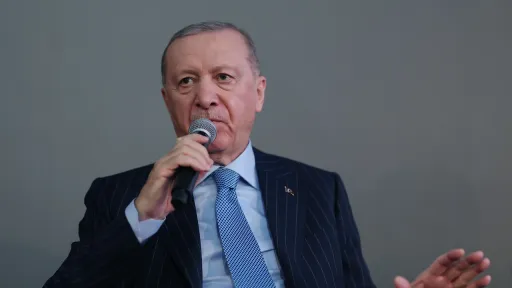By Charles Mgbolu
At first glance, the picture-perfect mountain ski resort of Davos, nestled in the Swiss canton of Graubünden, seems the antithesis of a typical business setting.
Time appears to stand still in this idyllic winter wonderland, bereft of hustle, as visitors from across the world descend to explore its many alpine charms at their own pace.
But this is not why Davos makes headlines every year. Since 1971, the venue of the annual gathering of the World Economic Forum (WEF) has been the epicentre of engaging discourse spanning sectors and issues that shape global, regional and industry agendas.
WEF 2025, themed "Collaboration for the Intelligent Age", is currently playing host to the world's political and economic elite, including many distinguished names from Africa.
The January 20-24 gathering has brought together around 3,000 attendees, including 350 government leaders and 60 heads of state and government from around 130 countries.
African representation includes South African President Cyril Ramaphosa, his counterpart Félix Tshisekedi of the Democratic Republic of Congo, and Somalia's President Hassan Sheikh Mohamud.
Egypt is represented by Prime Minister Mostafa Madbouli, and Nigeria by Vice President Kashim Shettima.
Question of priorities
One of the niggling doubts associated with this yearly congregation in Davos is about WEF's relevance to individual economies, particularly those in Africa.
The oft-heard question surrounding the summit is: Are the conversations in forums such as WEF in tune with the realities confronting many economies in Africa and elsewhere?
While discussions this year have centred on the implications of artificial intelligence or AI, one school of thought is that the topic may not be at the forefront of immediate concerns for many African nations.
These analysts argue that African leaders must maximise their presence at such high-level gatherings and not be "wasteful".
"Davos is relevant only when African leaders learn to integrate properly and strongly position Africa for positive economic growth," Jide Pratt, a Nigerian economic and business development expert, tells TRT Afrika.
"If, as an African leader, I can close a deal at Davos because the individual I want to negotiate with will be there, then the relevance of that conference is high."
Pratt also emphasises the critical need for African leaders to present a united front on the global stage.
"They must learn to coordinate among themselves and synchronise their plans. For example, introspect on why blocs like the G12 were formed. Examine how nations in a particular group always project and push a joint agenda in global dialogue," he explains.
This sentiment echoes the long-standing call for greater African unity in international forums.
Art of optimisation
Despite these repeated calls, the message appears to be consistently lost in translation. Pratt warns that this year's WEF will likely yield limited benefits for Africa if nations continue to pursue individual agendas.
South Africa's Ramaphosa, for example, said he would use the opportunity to push the objectives of his country’s G20 presidency, including value addition to mineral resources at source instead of exporting raw materials.
"As the G20, we need deliberate and coordinated efforts to focus on inclusive growth based on responsive trade and investment to grow the incomes of poor nations and the poorest in society and to ensure equal access to opportunities, especially for women and young people."
On his part, Nigeria’s Vice President Shettima invited investors to take "unfettered advantage of Nigeria's growing investment climate to tap from the limitless opportunities in the country and the African continent".
Pratt stresses that individualised goals weaken any continent-wide agenda.
"It's about intentionality. As an African leader, I will go to this conference with the end in mind. What is that end in mind for me? I want to see a continent-wide development in industrialisation and increase productivity. I will ensure that the groundwork for these objectives is ticked off before leaving the summit," he says.
President Ramaphosa, in his address at Davos, touched on the importance of global cooperation as the "bedrock of human civilisation and progress".
However, the crucial point raised by analysts remains: Without internal cooperation and alignment among African leaders to define shared goals and objectives, gatherings like Davos risk becoming little more than "talk shows".
➤Click here to follow our WhatsApp channel for more stories.
























